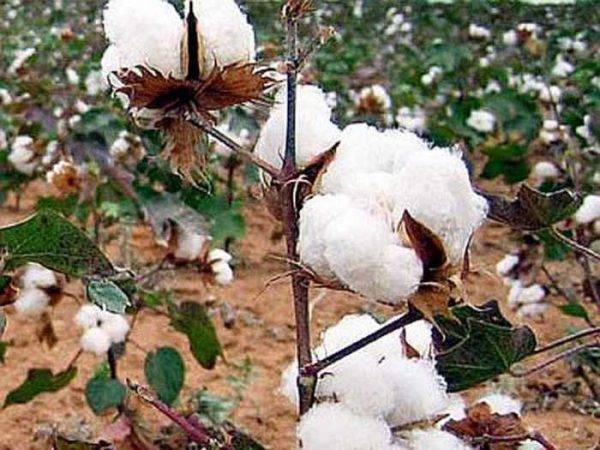

Bt cotton is the only genetically modified (GM) crop that has been approved for commercial cultivation in 2002 by the Government of India. Long term studies were conducted by ICAR on the impact of Bt cotton which did not show any adverse effect on soil, microflora and animal health. However, the Parliamentary Standing Committee on Science and Technology, Environment and Forests, in its report on ‘Genetically modified crops and its impact on environment’, submitted to parliament on August 25, 2017, recommended that GM crops should be introduced in the country only after critical scientific evaluation of its benefit and safety, and also recommended restructuring of regulatory framework for unbiased assessment of GM crops.
In 2002 approval for the commercial release of Bt cotton hybrids/ varieties resistant to cotton bollworm was given.
Bt Brinjal resistant to brinjal shoot fly developed by M/S Mahyco in collaboration with University of Agricultural Sciences, Dharwad; Tamil Nadu Agricultural University, Coimbatore and ICAR-Indian Institute of Vegetable Research, Varanasi was approved by GEAC in 2009 but due to 10 years moratorium imposed on GM crops by the Technical Expert Committee (TEC) appointed by the Hon’ble Supreme Court of India, no further action on commercialization has been taken. Recently the Genetic Engineering Appraisal Committee (GEAC), MoEF&CC, Govt. of India has again allowed biosafety research field trials of two new transgenic varieties of indigenously developed Bt Brinjal in eight states during 2020-23 only after taking no-objection certificate (NOC) from states concerned and confirmation of availability of isolated stretch of land for this purpose. These indigenous transgenic varieties of brinjal hybrids – namely Janak and BSS-793, containing Bt Cry1Fa1 gene (Event 142) – have been developed by the National Institute for Plant Biotechnology, (NIPB, erstwhile National Research Centre on Plant Biotechnology, New Delhi), Indian Council of Agricultural Research (ICAR).
GM mustard Dhara Mustard Hybrid 11 (DMH 11) developed by Delhi University is pending for commercial release as GEAC has advised to generate complete safety assessment data on environmental bio-safety, especially effects on beneficial insect species. No such request is pending in the matter.
ICAR always promotes the science based innovative technology including research on GM crops. ‘Network Project on Transgenic in Crops’ (presently Network Project on Functional Genomics and Genetic Modification in Crops) was launched by ICAR in 2005 for development of GM crops in case of pigeonpea, chickpea, sorghum, potato, brinjal, tomato and banana for different traits and the material is in different stages of development.
The Government of India has very strict guidelines to test and evaluate the agronomic value of the GM crops so as to protect the interests of the farmers. These guidelines address all concerns with regard to the safety of GM seeds. The regulatory system for GM crops as operative in the Department of Biotechnology, Ministry of Science and Technology (Review Committee on Genetic Manipulation; RCGM) and Ministry of Environment and Forests (Genetic Engineering Appraisal Committee; GEAC) has guidelines to consider the GM crops on case-by-case basis towards testing.
This information was given in a written reply by the Union Minister of Agriculture and Farmers Welfare Shri Narendra Singh Tomar in Lok Sabha today.

